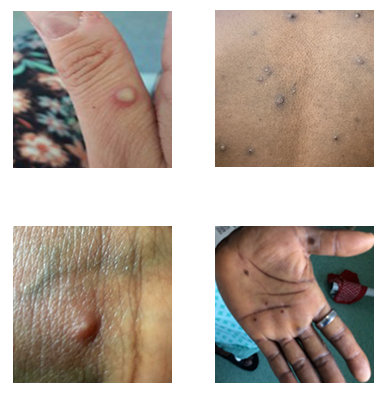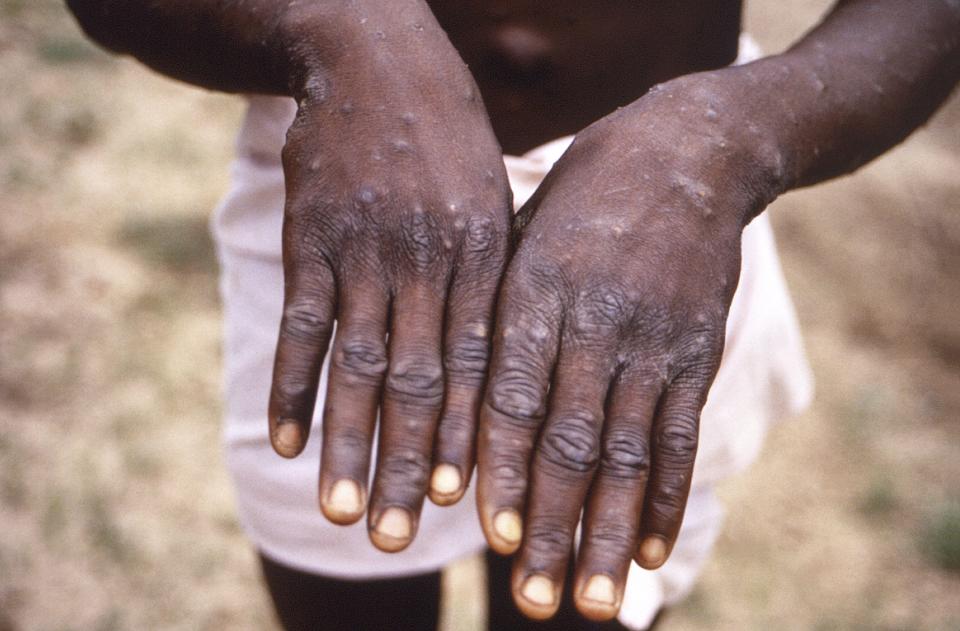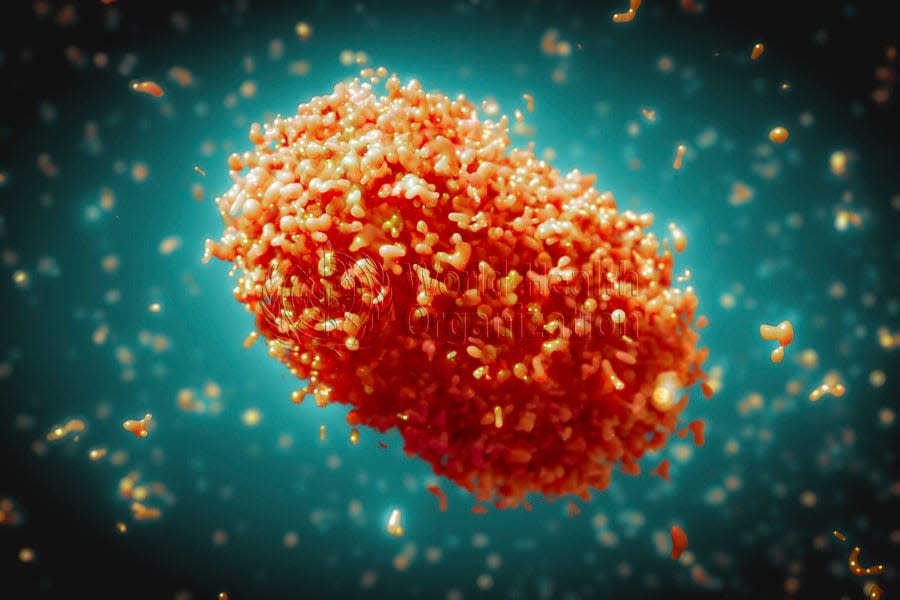2nd Michigan case of monkeypox identified in person from city of Detroit
A second Michigan case of monkeypox has been identified in a person from the city of Detroit, state health leaders told the Free Press on Thursday.
It is unclear whether the Detroiter with monkeypox is linked to the state's first confirmed case, which was identified last week in Oakland County, said Lynn Sutfin, a spokesperson for the Michigan Department of Health and Human Services.
Both remain under investigation, Sutfin said, as health officials try to identify close contacts of the people who have monkeypox and might have been exposed.

More: Michigan's first probable case of monkeypox virus is in Oakland County
More: 'Bursts of sharp jabbing pain': What it's like to have monkeypox – and the fight against stigma
"Right now, the information we have suggests that the number of high- and intermediate-risk contacts associated with the two identified cases is small," Sutfin said.
Michigan is one of 34 U.S. states with known cases of the virus, which also has spread to 54 countries outside of its endemic areas in an outbreak that has grown to include more than 7,000 people globally.
According to the U.S. Centers for Disease Control and Prevention, monkeypox can be spread through:
Direct contact with a person who has monkeypox rash or scabs, or contact with their body fluids.
Contact with contaminated surfaces, such as clothes or bedding that have touched a person with monkeypox rash or the person's body fluids.
Respiratory secretions during prolonged face-to-face contact or during intimate physical contact.
Scratches or bites from an infected animal or by eating meat using products from an infected animal.
Additionally, people who are pregnant can transmit the virus to the fetus through the placenta.
Because monkeypox is an orthopoxvirus that is closely related to smallpox, the tools used to tame smallpox outbreaks in the past can be used in response to monkeypox outbreaks.
There are two vaccines and one antiviral drug that are approved by the U.S. Food and Drug Administration to use against smallpox. One of those vaccines, Jynneos, can be used after exposure to monkeypox to prevent illness or make it less severe in people ages 18 and older.
The federal government has so far shipped 41,520 doses of the Jynneos vaccine from the Strategic National Stockpile to states and U.S. territories. Most of it has gone to places with the biggest monkeypox outbreaks, such as California, New York and Illinois.
Twenty-four doses of the Jynneos vaccine have been distributed to Michigan as of July 7, according to the U.S. Department of Health and Human Services.

More: US to release at least 1.6 million vaccines to fight monkeypox by end of year, officials say
More: How to get a vaccine against monkeypox in the US. Who should get one?
Ideally, a person who was exposed to monkeypox should get vaccinated within four days of exposure to prevent disease or four to 14 days after exposure to limit severity of disease, according to the CDC.
While the CDC does not advise widespread monkeypox vaccination, it suggests the vaccine may be recommended for people who:
Have had confirmed close physical contact with someone diagnosed with monkeypox.
Have a sexual partner who was diagnosed with the virus.
May have been exposed.
Are men who have sex with men who have recently had multiple sex partners in an area where there was known to be monkeypox or where the virus was spreading.
Perform laboratory testing to diagnose monkeypox and may be at risk of exposure.
The federal agency suggests that anyone with a rash that is consistent with monkeypox seek medical care. The CDC also is urging health care providers to be on the lookout for possible cases, regardless of a patient's risk factors, travel history, gender or sexual orientation.
It can take up to 21 days for monkeypox symptoms to develop after a person is infected, according to the CDC. But when symptoms first appear, they are typically flulike and include the swelling of lymph nodes. Common are:
Fever
Headache
Muscle aches
Backache
Swollen lymph nodes
Chills
Exhaustion
From one to three days after the flulike symptoms begin, people typically develop a rash and lesions that may start in one place on the body and spread to other parts.
Lesions progress through stages and scab before falling off.
The illness typically lasts two to four weeks, and could initially be confused with a sexually transmitted disease such as syphilis or herpes.

"It is important to remember that the risk to the general public is low and there many more common causes of rash than monkeypox," Sutfin said.
"However, Michiganders with concerns about monkeypox should see their provider to be evaluated for testing. Clinicians are best positioned to determine if the individual has a rash consistent with monkeypox."
Contact Kristen Shamus: kshamus@freepress.com. Follow her on Twitter @kristenshamus.
This article originally appeared on Detroit Free Press: City of Detroit resident has the 2nd known Michigan monkeypox case

